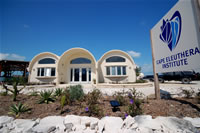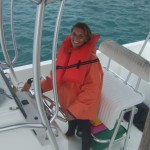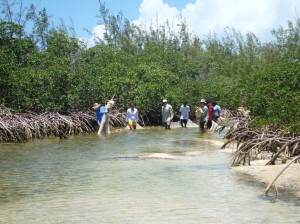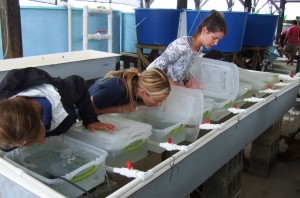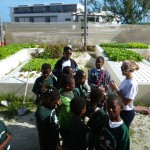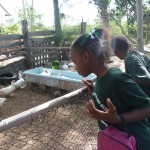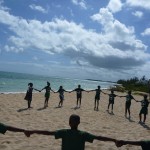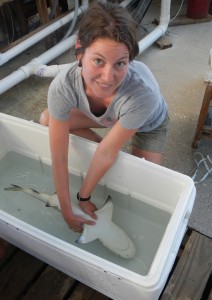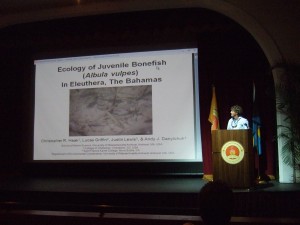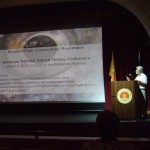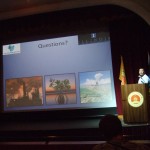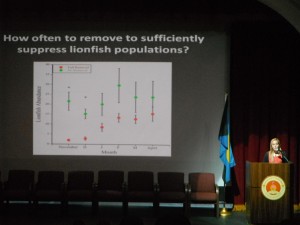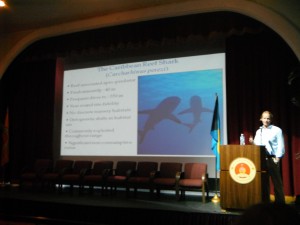This eyewitness account was written by a student in the University School-Hathaway Brown Program:
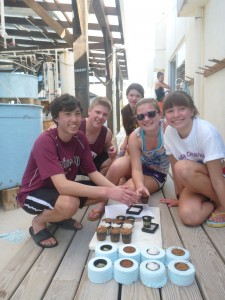 Before getting started, allow me to explain one reason why the Island School was such an eye-opening, incredible experience for my group and me. We are from Cleveland. Between the incessant snow and cloudy days, it seems that conservation is the last thing on our minds. So when our science research-based school club (the Anderson Scholars) of five boys, in addition to five girls (also interested in science research) from our all-girls sister school Hathaway Brown, received the notice that we would be spending a week in the beautiful, sunny Bahamas, we didn’t know what to expect.
Before getting started, allow me to explain one reason why the Island School was such an eye-opening, incredible experience for my group and me. We are from Cleveland. Between the incessant snow and cloudy days, it seems that conservation is the last thing on our minds. So when our science research-based school club (the Anderson Scholars) of five boys, in addition to five girls (also interested in science research) from our all-girls sister school Hathaway Brown, received the notice that we would be spending a week in the beautiful, sunny Bahamas, we didn’t know what to expect.
The Island School is its own microcosm of shape shifting individuals. From the engaging curriculum, an individual becomes a motivated student. From the hands-on outdoor activities, one becomes a 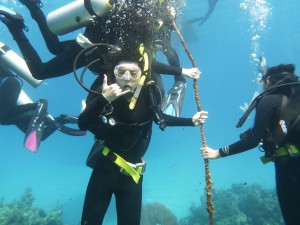 teammate. From the encouragement of others, one transforms into a leader. While most schools are trying to discover a way to make their curriculum applicable to the outside world, the Island School has already developed several tried and true methods to make it a precedent for said schools. The school is a place where the words “when will I ever use this outside of class?” will never be uttered from a student’s lips. The students are warm, outgoing, and most importantly, passionate; they are passionate about school, conservation, and lifting each other up. The science researchers are driven, and extremely helpful. Continue reading
teammate. From the encouragement of others, one transforms into a leader. While most schools are trying to discover a way to make their curriculum applicable to the outside world, the Island School has already developed several tried and true methods to make it a precedent for said schools. The school is a place where the words “when will I ever use this outside of class?” will never be uttered from a student’s lips. The students are warm, outgoing, and most importantly, passionate; they are passionate about school, conservation, and lifting each other up. The science researchers are driven, and extremely helpful. Continue reading


